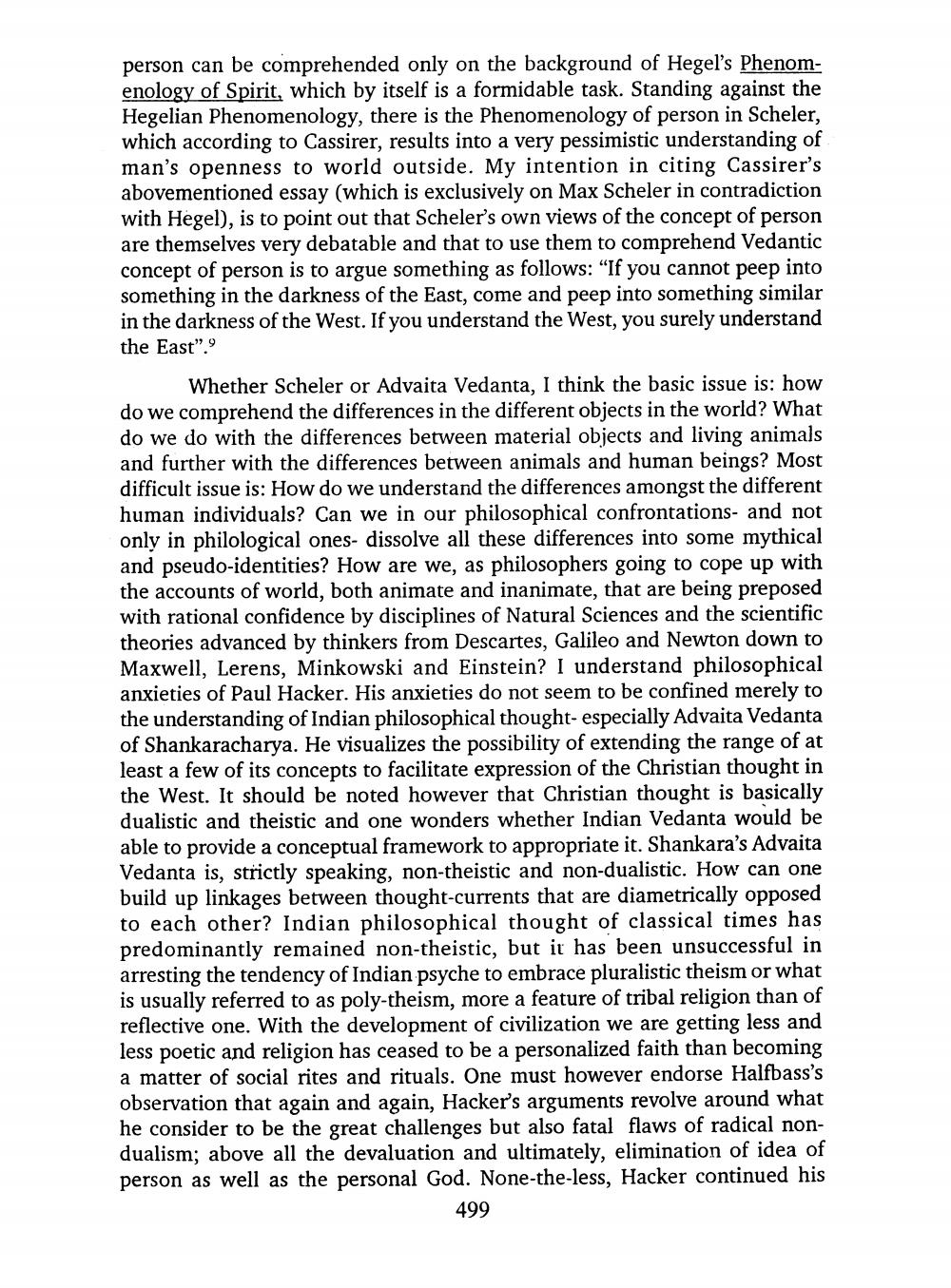________________
person can be comprehended only on the background of Hegel's Phenomenology of Spirit, which by itself is a formidable task. Standing against the Hegelian Phenomenology, there is the Phenomenology of person in Scheler, which according to Cassirer, results into a very pessimistic understanding of man's openness to world outside. My intention in citing Cassirer's abovementioned essay (which is exclusively on Max Scheler in contradiction with Hegel), is to point out that Scheler's own views of the concept of person are themselves very debatable and that to use them to comprehend Vedantic concept of person is to argue something as follows: "If you cannot peep into something in the darkness of the East, come and peep into something similar in the darkness of the West. If you understand the West, you surely understand the East".
Whether Scheler or Advaita Vedanta, I think the basic issue is: how do we comprehend the differences in the different objects in the world? What do we do with the differences between material objects and living animals and further with the differences between animals and human beings? Most difficult issue is: How do we understand the differences amongst the different human individuals? Can we in our philosophical confrontations and not only in philological ones- dissolve all these differences into some mythical and pseudo-identities? How are we, as philosophers going to cope up with the accounts of world, both animate and inanimate, that are being preposed with rational confidence by disciplines of Natural Sciences and the scientific theories advanced by thinkers from Descartes, Galileo and Newton down to Maxwell, Lerens, Minkowski and Einstein? I understand philosophical anxieties of Paul Hacker. His anxieties do not seem to be confined merely to the understanding of Indian philosophical thought- especially Advaita Vedanta of Shankaracharya. He visualizes the possibility of extending the range of at least a few of its concepts to facilitate expression of the Christian thought in the West. It should be noted however that Christian thought is basically dualistic and theistic and one wonders whether Indian Vedanta would be able to provide a conceptual framework to appropriate it. Shankara's Advaita Vedanta is, strictly speaking, non-theistic and non-dualistic. How can one build up linkages between thought-currents that are diametrically opposed to each other? Indian philosophical thought of classical times has predominantly remained non-theistic, but it has been unsuccessful in arresting the tendency of Indian psyche to embrace pluralistic theism or what is usually referred to as poly-theism, more a feature of tribal religion than of reflective one. With the development of civilization we are getting less and less poetic and religion has ceased to be a personalized faith than becoming a matter of social rites and rituals. One must however endorse Halfbass's observation that again and again, Hacker's arguments revolve around what he consider to be the great challenges but also fatal flaws of radical nondualism; above all the devaluation and ultimately, elimination of idea of person as well as the personal God. None-the-less, Hacker continued his
499




